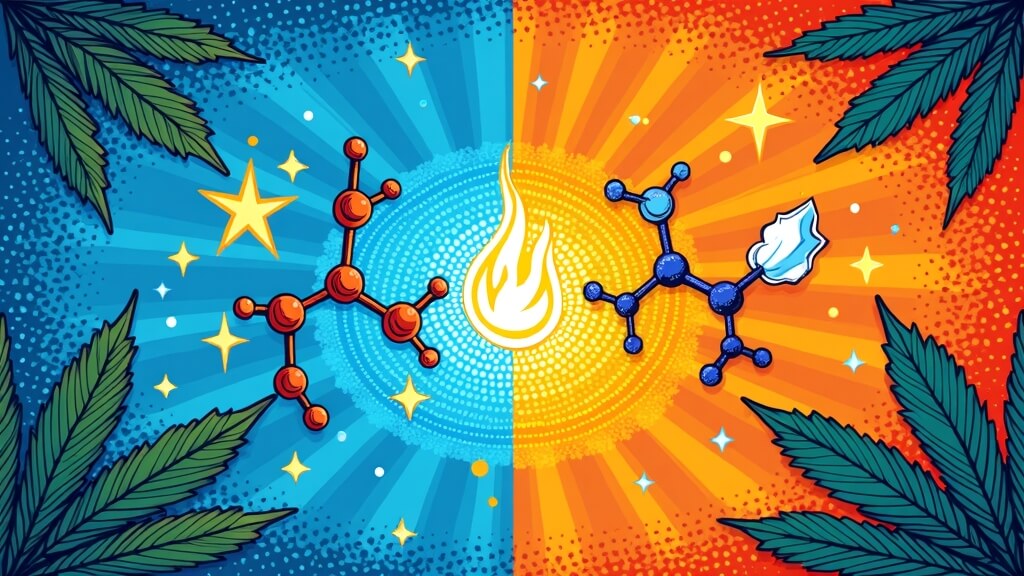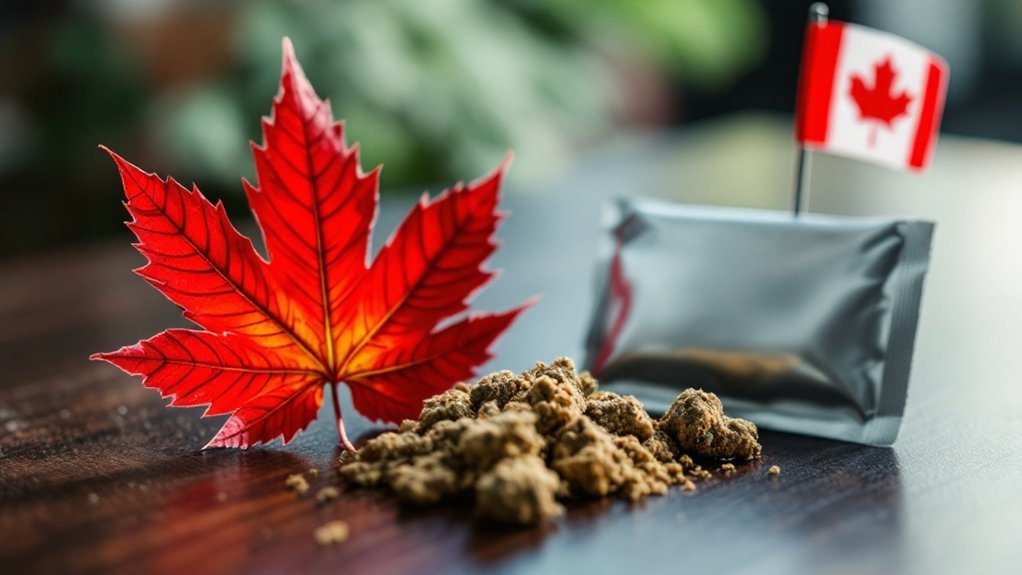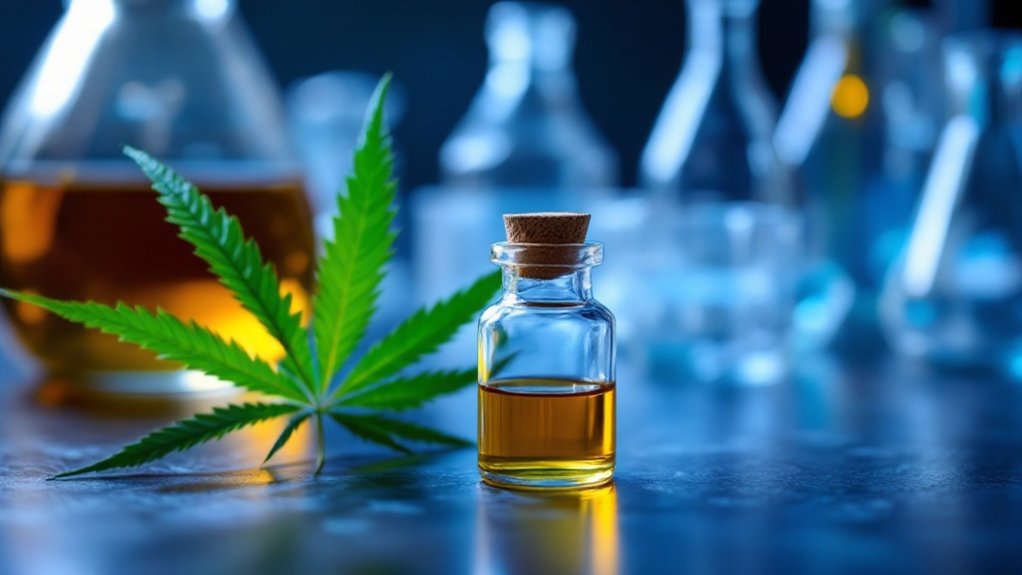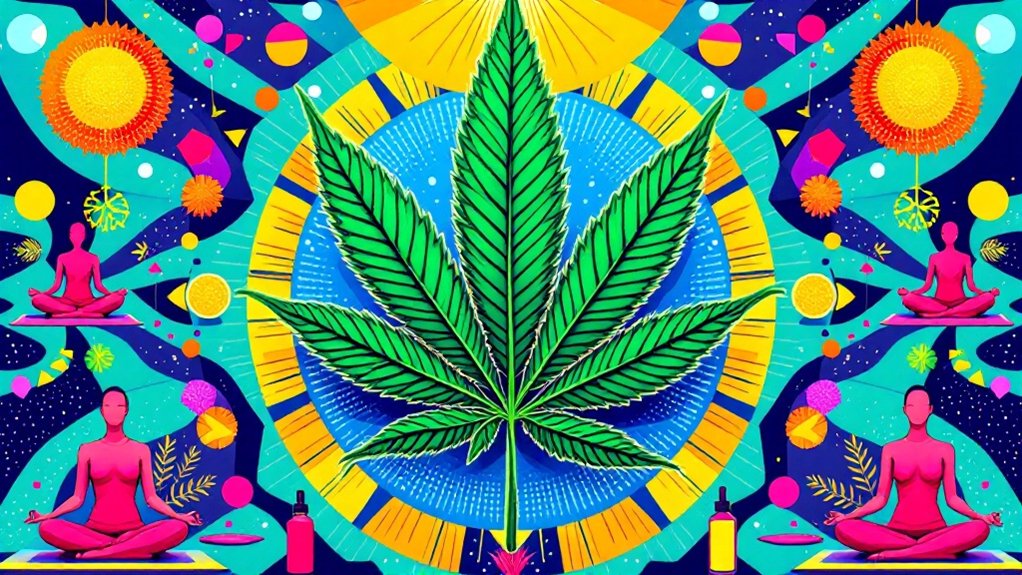THC gets you high. THCA doesn’t. It’s that simple. Raw cannabis plants contain mostly THCA, which has an extra molecular bit preventing it from binding to brain receptors. Heat changes everything—literally. When cannabis is smoked or heated, THCA transforms into THC through decarboxylation, releasing those famous psychoactive effects. Both compounds offer therapeutic benefits, but only one will have you raiding the fridge at 2 AM. The science explains why consumption method matters.
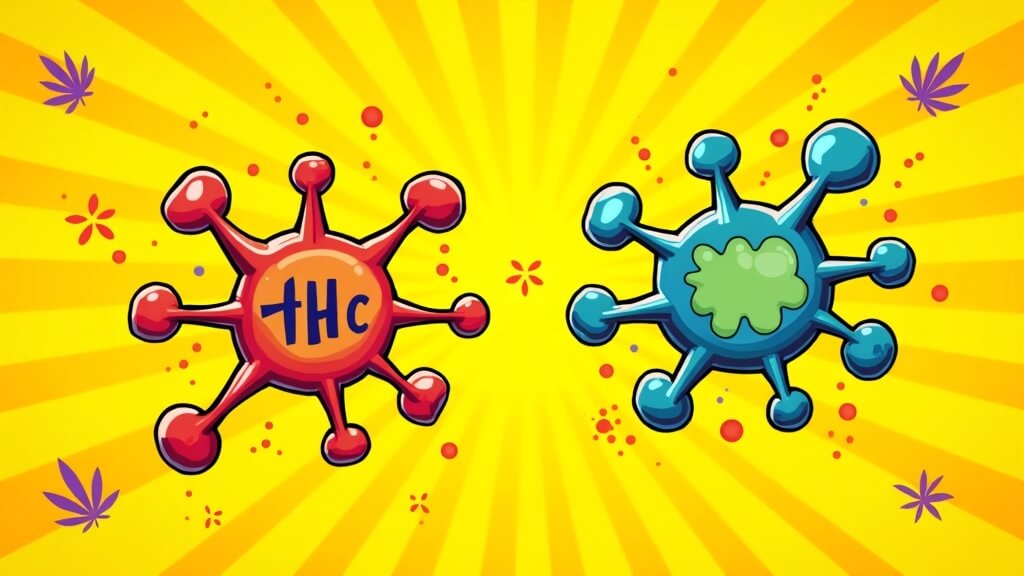
Cannabis compounds can be confusing, but understanding the differences is important. The cannabis plant holds secrets that define your experience, whether you’re looking for a Friday night buzz or relief without the high. At the heart of this distinction: THC and THCA, two molecules with striking similarities yet profoundly different effects.
THCA, the non-psychoactive precursor, dominates raw cannabis plants. That’s right—chew on fresh cannabis leaves all day and you’ll get fiber, not fun. The molecule’s extra carboxyl group prevents it from binding properly to CB1 receptors in your brain. No binding, no high. Simple chemistry.
Heat changes everything. When you smoke, vape, or bake cannabis, you’re triggering decarboxylation—the process that transforms boring old THCA into THC by removing that pesky carboxyl group. Suddenly, the molecule fits your brain receptors like a key in a lock. Hello, euphoria and munchies!
The magic moment: heat strips THCA’s molecular armor, unleashing THC’s perfect fit with brain receptors.
The legal world hasn’t quite caught up with the science. THC faces strict regulation while THCA exists in a grayer area in many jurisdictions. Cannabis products increasingly highlight THCA content for consumers seeking benefits without intoxication. Smart marketing or useful information? Both, probably.
Product selection grows more sophisticated daily. THCA flower for the wellness crowd. THC gummies for those seeking altered perception. Different strains bred for specific cannabinoid profiles. THCA products are especially appealing to those who want anti-inflammatory and neuroprotective benefits without psychoactive effects. Consumer choice—what a concept!
The therapeutic potential of both compounds continues to intrigue researchers. THCA offers possibilities without the high, while THC delivers its own benefits alongside psychoactive effects. THCA can constitute a significant portion of the plant’s THC potential in fresh cannabis. Two sides of the same molecular coin.
Understanding the distinction matters. Raw cannabis won’t get you high—it needs heat. Different products serve different purposes. The science is clear, even if regulations aren’t. Cannabis chemistry dictates effects, not marketing claims or wishful thinking. Knowledge is power. Or in this case, the difference between unexpected intoxication and intended outcomes.
For those seeking therapeutic benefits of THCA without converting it to THC, raw cannabis juicing has become increasingly popular in wellness shops and cafes.
Frequently Asked Questions
Will THCA Get You High Like THC Does?
THCA won’t get you high. Period. The science is clear on this one.
Unlike its famous cousin THC, THCA contains a carboxylic acid group that prevents it from binding to brain receptors responsible for that cannabis buzz.
Raw cannabis? No high. Heat it up though—through smoking, vaping, or cooking—and THCA transforms into psychoactive THC.
Chemistry, folks. The difference between chilling with therapeutic benefits and taking a mental vacation.
How Is THCA Converted to THC?
THCA transforms into THC through decarboxylation—fancy term for heating it up.
The process strips away a carboxyl group, releasing CO2. Happens instantly when smoking at 300°F.
Slower in an oven at 212°F, taking 30-45 minutes.
Nature does it too—aging or UV exposure—but who’s got years to wait?
Temperature and time matter.
Too hot? You’ll end up with sleepy CBN instead.
Chemistry’s wild, right?
Can You Legally Purchase THCA in States Where THC Is Illegal?
The legal status of THCA remains wildly inconsistent across America.
In some states where THC is illegal, THCA exists in a weird legal limbo. Thanks to the 2018 Farm Bill, hemp-derived THCA with less than 0.3% delta-9 THC is technically legal federally.
But states like Idaho, Kansas, and South Dakota? Forget about it. They’ve slammed the door shut on all cannabis compounds.
Other states have patchwork restrictions. Quite the regulatory mess.
Does THCA Show up on Drug Tests?
THCA can indeed trigger positive drug tests.
Here’s why: when heated, THCA converts to THC. Standard tests don’t look for THCA directly—they detect THC metabolites.
Even occasional THCA use might flag a test. Urine tests can spot it for up to 30 days, blood tests for a couple days max, saliva tests for 72 hours.
Hair tests? Those buggers detect it for a whopping 90 days.
What Medical Conditions Might Benefit From THCA Specifically?
Research suggests THCA could benefit several medical conditions. Inflammatory disorders top the list, with animal studies showing promising results.
Neurological patients might find relief too—THCA has shown potential against Alzheimer’s-related proteins in mice.
Nausea sufferers, take note. THCA outperformed THC in some anti-nausea studies.
And seizure patients? There’s hope there as well.
Metabolic syndrome and weight management round out the potential applications.
Still early days, though. Clinical trials are ongoing.
